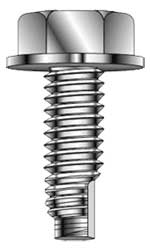It would be a logical assumption to believe that a buyer within an organization that is looking for Alloy 20 Check Valves would actually know what they are. However, from my experience on the supply side, many buyers sit comfortably in their offices handling requisitions from the engineers and managers out in the field or down on the shop floor. Those guys know exactly what they need when they raise a purchase requisition for Alloy 20 Check Valves but, quite often, all that the buyer knows is the words he sees and often has little idea about what those words actually mean.
Probably, the meaning of valve is understood since this is a common device for placing into pipes that carry fluids and serves a purpose in controlling the flow of fluid within the pipe. Usually, but not always, the control is basically a matter of either “on” or “off”.
What Is A Check Valve?
Most valves have two openings designed to be connected to a pipe (commonly by flanges or screw threads). One opening allows fluid to enter the valve while the other acts as the exit. Some valves can be fitted either way around but check valves are usually uni-directional. A check valve is operated by the fluid passing through it. It will open when fluid pressure reaches a pre-determined level (known as the cracking pressure) and will close itself whenever the incoming pressure drops below that level. When buying a check valve, you have to inform the supplier of the cracking pressure you desire.
You must also tell them how you intend to fit it to the pipe. It is always a good idea to inform suppliers of all the details about how the valve will be used. Things like chemical composition of your fluid(s) and operating temperatures and pressures help the supplier to provide his best valve for your application.
What Is Alloy 20?
Authorized Parts Alloy 20 Check is a speciality metal originally developed for use with sulphuric acid. It is basically a nickel based alloy with chromium, molybdenum and iron plus copper. It is also better than many stainless steels in resistance to some forms of corrosion.
When seeking alloy 20 check valves you are really looking for a non-return valve where all the metal parts within the valve, which can come into contact with the fluid in your pipes, are made from alloy 20. These are often called the wettable parts that might be attacked by the fluid if incorrectly specified.



